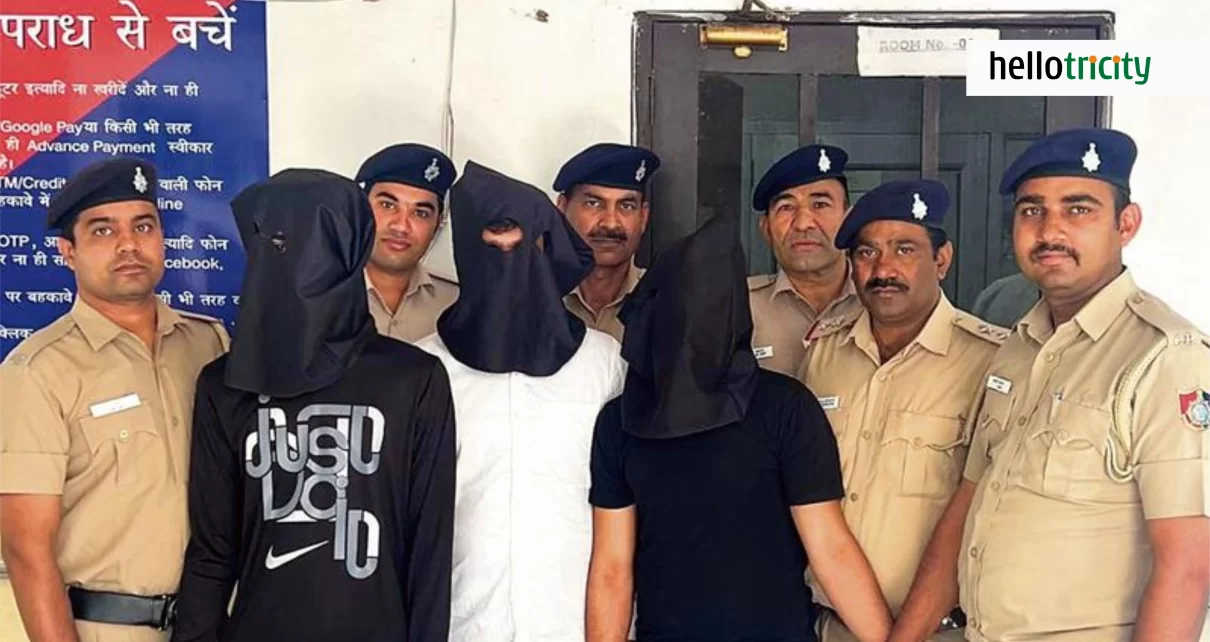Police in Chandigarh have uncovered an elaborate cyber fraud scheme that was being conducted out of a hotel owned by the spouse of a Chandigarh Police Assistant Sub-Inspector (ASI). The scam involved the usage of identity papers belonging to impoverished individuals for opening bank accounts and obtaining SIM cards. Eventually, it was unearthed during the detention of two main accused persons.
The accused, identified as Devender Kumar Yadav (31) and Shankar Suvan Shukla (24), both from Balrampur, Uttar Pradesh, were operating the fraudulent activities from a room in the hotel. Police also apprehended Avinash, who assisted in opening fraudulent bank accounts at Indian Bank, Sector 17, and the hotel manager, Birender Yadav, who failed to maintain proper records of guests, allowing the criminals to operate undetected.
The hotel, owned by the wife of the Chandigarh Police ASI, was leased to Birender, who operated the facility and paid a monthly cash rent of ₹1.5 lakh. The ASI’s wife’s involvement in the unlawful actions is being investigated, as is the potential of complicity by bank workers who may have helped enable the scam.
According to police reports, Yadav and Shukla targeted vulnerable persons, such as rickshaw drivers and inhabitants of economically deprived regions, mainly in Uttar Pradesh and Bihar. Individuals were offered financial incentives ranging from ₹10,000 to ₹20,000 for providing their identity documents.
Using these documents, the suspects opened bank accounts and obtained SIM cards in the victims’ names, retaining control of the account kits, including chequebooks and ATM cards. These accounts and SIM cards were then used for various cyber fraud activities, including online trading and investment scams. Some accounts were also sold to other criminals for similar fraudulent purposes.
The racket was exposed on August 11, when the Cyber Crime police station received a tip-off about illegal activities taking place in the hotel room. Police raided the room and discovered seven bank accounts, a laptop, three mobile phones, SIM cards, ATM cards, and many chequebooks.
Based on the evidence, the Cyber Crime police station filed a complaint under multiple sections of the Indian Penal Code (IPC). The investigation is still underway, with officials looking further into the network and the possible participation of additional people in the scheme.



